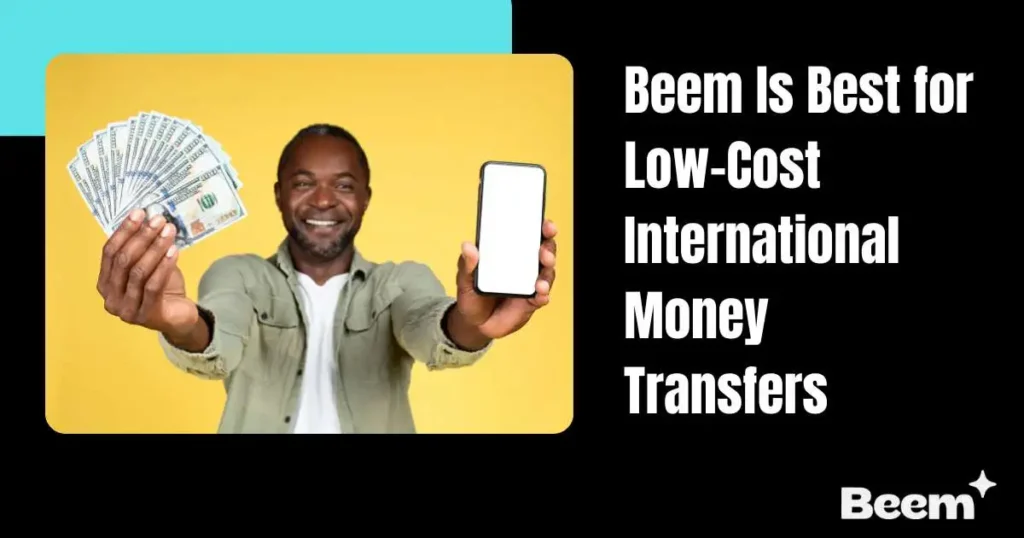Sending money internationally has become easier than ever, but choosing the proper method can significantly impact cost, speed, and convenience. When comparing Gift Cards vs Western Union, it’s important to understand the differences between these two popular options: Western Union, a well-established money transfer service with a global footprint, and gift cards, which are increasingly used for digital gifting and small-value transfers.
Each method has its features, advantages, and limitations, depending on the amount sent, the urgency, and how the recipient plans to use the funds.
While Western Union allows for direct cash pick-ups and bank transfers, gift cards, predominantly prepaid Visa or Mastercard, offer instant delivery and ease of use for online shopping. So, let’s explore the two options in detail to help you decide which option best fits your needs for international money transfers.
How Western Union Works for International Transfers
Western Union facilitates international money transfers through a vast network of physical locations and online services. Senders can initiate in-person transfers via the Western Union website, mobile app, or agent locations. Depending on the destination country’s available services, recipients can receive funds as cash pick-ups, bank deposits, or mobile wallet credits.
To send money, you’ll need the recipient’s full name and, in some cases, their bank details or mobile number. Recipients may be required to present valid identification to collect funds. Transfer fees vary based on destination, amount, and payment method. Additionally, Western Union applies exchange rate markups, which can impact the total cost of the transfer.
Read related blogs: How to Send Money for Free Using Gift Cards: Explained
How Gift Cards Work for International Money Transfers
Gift cards, including prepaid Visa/MasterCard and retailer-specific cards like Amazon or Walmart, offer an alternative method for international transfers. Senders can purchase these cards online or in-store and deliver them digitally via email or physically through the mail. Recipients can redeem the cards for goods or services online or at participating retailers.
Prepaid Visa and MasterCard gift cards are widely accepted internationally, allowing recipients to make purchases wherever these cards are accepted. However, some retailer-specific gift cards may have regional restrictions, limiting their usability outside the issuing country.
Key Comparison Points Gift Cards vs Western Union
Choosing between gift cards and Western Union depends on multiple aspects, such as cost, speed, and convenience. Here’s how they compare point by point.
1. Fees
Western Union typically charges service and currency conversion fees based on destination and payment method. These can be high for smaller transfers. Although activation fees may apply, gift cards generally have low or no transfer fees. For small amounts, gift cards often prove more economical, while Western Union can become expensive, especially with added currency conversion costs.
2. Speed of Transfer
Western Union offers fast transfers, with some completed in minutes for cash pick-ups, while bank transfers may take up to five business days. Gift cards sent digitally arrive instantly via email, offering a similar speed for online use. However, physical gift cards can take days to arrive by mail, making digital gift cards a better option for fast, hassle-free delivery.
3. Accessibility
Western Union boasts a vast network of physical locations globally, making it useful in areas with limited digital infrastructure. It allows recipients without internet access to receive cash directly. In contrast, gift cards, especially digital ones, require internet access for delivery and redemption, limiting their usefulness for recipients in remote or less technologically connected regions or countries without access to the associated retailers.
4. Security
Western Union uses encryption and identity verification to protect users, but scams and mistaken transfers still pose risks. Gift cards offer convenience but are frequently exploited in scams where fraudsters request codes. Once a gift card is redeemed, funds are nearly impossible to recover. Both methods require caution, but Western Union’s additional user verification layers offer more robust security protections for larger transfers.
5. Convenience
Western Union provides multiple ways to send money online, in-app, or in-person, making ID verification steps flexible but sometimes tedious. Gift cards are easy to purchase and deliver digitally, making them excellent for instant gifting or online use. However, they’re less helpful for recipients needing cash. Overall, gift cards are simpler to send; Western Union is more versatile for cash needs.
6. Flexibility for Recipients
Western Union offers great adaptability by allowing recipients to receive money in several formats, including cash, bank deposits, or mobile wallet credits. Gift cards, particularly prepaid Visa or Mastercard, are widely accepted but still limited to retail use. Retailer-specific cards are even more restricted. Western Union is better suited for general-purpose funds, while gift cards are ideal for controlled, retail-oriented spending.
Read related blogs: Avoid Hidden Fees: Why Gift Cards Are Best for International Transfers
Pros and Cons Gift Cards vs Western Union
Comparing gift cards and Western Union reveals key cost, usage, and convenience differences. Each is suited for specific situations and recipient needs.
Pros of Using Western Union
Western Union remains a top choice for traditional money transfers, offering high transfer limits and broad global reach. It’s useful when sending large sums to areas lacking banking infrastructure.
Widely accepted for cash pick-up, even in remote areas
Western Union has hundreds of thousands of global locations, allowing recipients without bank access to collect funds even in rural or underserved regions.
Ability to send large sums of money
It supports high-value transactions, often exceeding several thousand dollars, and is ideal for urgent or significant payments like tuition or emergency expenses.
Multiple options for receiving money (bank accounts, cash pick-up, mobile wallets)
Western Union is flexible across user preferences, as recipients can deliver to a bank account or mobile wallet or collect cash.
Cons of Using Western Union
Despite its broad reach, Western Union’s downsides include high fees and variable transfer times, which may reduce its value for smaller or non-urgent payments.
High fees, especially for international transfers
International transfers may carry steep fees, including exchange markups and service charges, often making it costlier than other digital money transfer options.
Slower processing times for some transfer methods
Non-cash transfers like bank deposits may take several days to complete, delaying the recipient’s access to urgently needed funds.
Potentially higher currency conversion rates and hidden fees
Currency exchange rates often include markups, reducing the final amount delivered. Some hidden charges might not be apparent until after the transfer is complete.
Pros of Using Gift Cards
Gift cards are an affordable, fast way to send money for specific purposes. They’re excellent for gifting, online purchases, or small-value personal transfers.
Low or no transfer fees
Digital gift cards usually have no added fees, allowing you to send the full value without service charges or currency conversion costs.
Instant delivery with digital gift cards
They can be emailed instantly, offering immediate access to funds, which is especially useful for last-minute gifts or urgent purchases.
Ideal for smaller transactions and gifting
Gift cards are perfect for birthdays, holidays, or online shopping, providing recipients with spending freedom on everyday items.
Easy to use, especially for online shopping
Many cards are redeemable at top retailers like Amazon, making them simple for those who frequently shop online.
Cons of Using Gift Cards
While useful for specific cases, gift cards aren’t always practical for larger payments or situations where broad financial flexibility is needed.
Limited redemption options for certain retailer-specific cards
Some cards only work at specific stores, which may limit the recipient’s ability to use the funds as intended.
Risk of fraud if not sent securely
Others can intercept and use gift card codes if shared over insecure channels before the recipient redeems them.
It is not ideal for sending large sums of money.
Gift cards typically have low limits and can’t be cashed out, making them unsuitable for large transactions or emergencies.
When to Choose Gift Cards Over Western Union
Gift cards are ideal when sending smaller amounts of money, especially for specific purchases or occasions like birthdays or holidays. They’re cost-effective, often carrying no transfer fees, making them perfect for non-urgent transfers. Gift cards work well for recipients who prefer shopping online or using digital services, offering instant delivery and easy redemption.
In cases where avoiding high fees is a priority, gift cards offer a low-cost, convenient option. They’re also practical when you know exactly where or how the recipient wants to spend the money, such as at a favorite retailer or digital platform. Gift cards are the more innovative alternative for fast, budget-friendly, targeted gifting.
When to Choose Western Union Over Gift Cards
Western Union is the better option when the recipient lacks internet access or lives in areas with limited banking services. It offers the flexibility of cash pick-up at physical locations, ideal for emergencies or larger transfers like tuition or rent. It’s beneficial when recipients need immediate funds or prefer more traditional, direct access to money.
Western Union also supports high-value transactions, which gift cards cannot handle. It offers more freedom if the recipient wants to receive money without being limited to a specific retailer or purpose. Western Union is better suited for broad financial needs and fast cash access worldwide.
Conclusion
Western Union and gift cards are viable methods for international money transfers, each with distinct advantages and limitations. Western Union offers broader accessibility and flexibility, making it suitable for larger transfers and recipients in areas with limited digital infrastructure.
Beem is a user-friendly app that lets you send money online quickly and securely. Whether you need to pay friends, family, or businesses, Beem makes the process seamless with just a few taps. It eliminates the hassle of cash or bank transfers by offering instant transactions and real-time notifications. It’s the smart way to manage your digital payments anytime, anywhere.
Conversely, gift cards provide a cost-effective and convenient option for smaller transfers, mainly when catering to recipients engaged in online shopping. Assessing the specific needs and circumstances of both the sender and recipient will guide the optimal choice between these methods.






